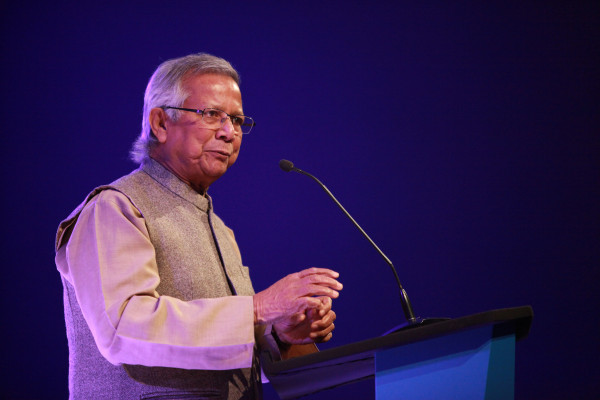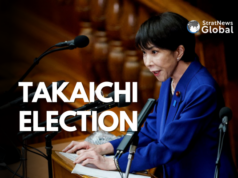
Elections in Bangladesh will be held only by June 2026, is the word from Chief Interim Adviser Mohammad Yunus. His press secretary Shafiqul Alam told the media on Sunday night in Dhaka, that the decision had been welcomed by all political parties.
Dhaka Tribune quoted Alam as saying that “The party leaders have expressed their support for Prof Yunus. They fully support the reforms we are carrying out, the judicial work we have started and the election process we have initiated.”
He made the significant addition that “They said they will stand by the interim government and the chief adviser.”
The remark suggests that after spending much of Sunday conferring with the political parties including the BNP, the Jamaat-e-Islami and the NCP (comprising students who led the uprising against Sheikh Hasina, the now ousted prime minister), some consensus has emerged on the way forward for Bangladesh.
On Sunday, after meeting Yunus, the BNP had reiterated its demand for elections by December this year or even earlier. The Jamaat echoed the Yunus line preferring later elections since the reform process was yet to be completed, while the NCP said reforms before anything else.
There may be some disquiet in India over remarks attributed to Yunus, where he had referred to a “major war-like situation” facing the country.
“Following the ban on the Awami League’s activities,” Alam was quoted in the Dhaka Tribune as saying, “efforts are being made to create instability. He (Yunus) stressed the need to protect the nation from such attempts. He emphasised the importance of unity and reaching a consensus to avoid a division.”
“This unrest is aimed at preventing progress, leading total collapse and pushing the nation back into a state of subjugation.”
Was Yunus referring to India? It’s no secret that since the ouster of Sheikh Hasina in August last year, ties between the interim administration and Delhi have not been good.
Yunus has rejected India’s concerns over the attacks on minority Hindus and demanded that Hasina be sent back to Bangladesh for trial. He has courted Chinese investment in areas close to India’s sensitive “Chicken’s Neck” corridor in Assam and made Beijing his first port of call after taking charge as interim adviser.
Delhi’s disquiet stems from the fact that as interim adviser, Yunus’ position is temporary, he has not won any election, which alone would entitle him to take the kind of policy decisions he has taken.
Is Yunus marching to the beat of his own drum or somebody else’s is not clear. Or is India reading too much into the Yunus phenomenon? Some clarity may emerge further down the road.
Thirty eight years in journalism, widely travelled, history buff with a preference for Old Monk Rum. Current interest/focus spans China, Technology and Trade. Recent reads: Steven Colls Directorate S and Alexander Frater's Chasing the Monsoon. Netflix/Prime video junkie. Loves animal videos on Facebook. Reluctant tweeter.




